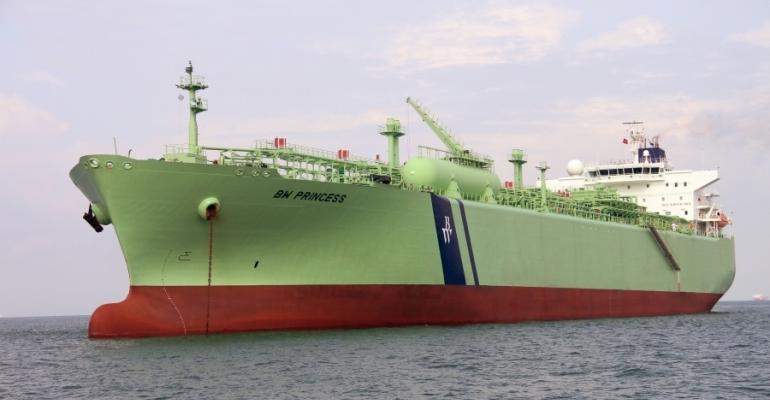BW LPG has inked contracts including future options for the delivery and retrofitting of four vessels with LPG powered dual-fuel engines, with installations starting from drydockings in 2020.
“BW LPG has been preparing for IMO 2020 for years and today, I am pleased to announce that we have signed contracts for the delivery and retrofitting of four LPG-propelled dual-fuel engines,” said Martin Ackermann, BW LPG ceo.
BW LPG said it would reduce sulphur oxide emissions by 97% meaning the vessel's would comply with both the global 0.5% sulphur cap from 2020 and 0.1% sulphur limits in Emission Control Areas (ECAs). The engines will also cut particulate matter emissions by 90%, greenhouse gases by 25% and nitrogen oxides by 20%.
The company also claimed that LPG would improve output efficiencies by 11% more than other complaint fuels for the sulphur cap..
“We will be the global pioneer in operating next-generation, high-tech green ships with dual-fuel propulsion. Responsible operations and profitability are not conflicting goals - rather, they are preconditions for each other. This retrofitting is just one way in which we ensure that our shareholders invest in a forward-looking company that positions itself well for future challenges,” Ackermann said.
The cmpany said that even at today's pricing LPG was advantageous versus heavy fuel.
LPG propulsion is an alternative strategy to complying with the sulphur cap. The majority of owners are set to use low sulphur fuels for compliance come 2020, while a significant number are fitting scrubbers to continue using high sulphur fuel oil, and a smaller number are option for LNG propulsion and methanol.
Copyright © 2024. All rights reserved. Seatrade, a trading name of Informa Markets (UK) Limited.
Add Seatrade Maritime News to your Google News feed.  |


